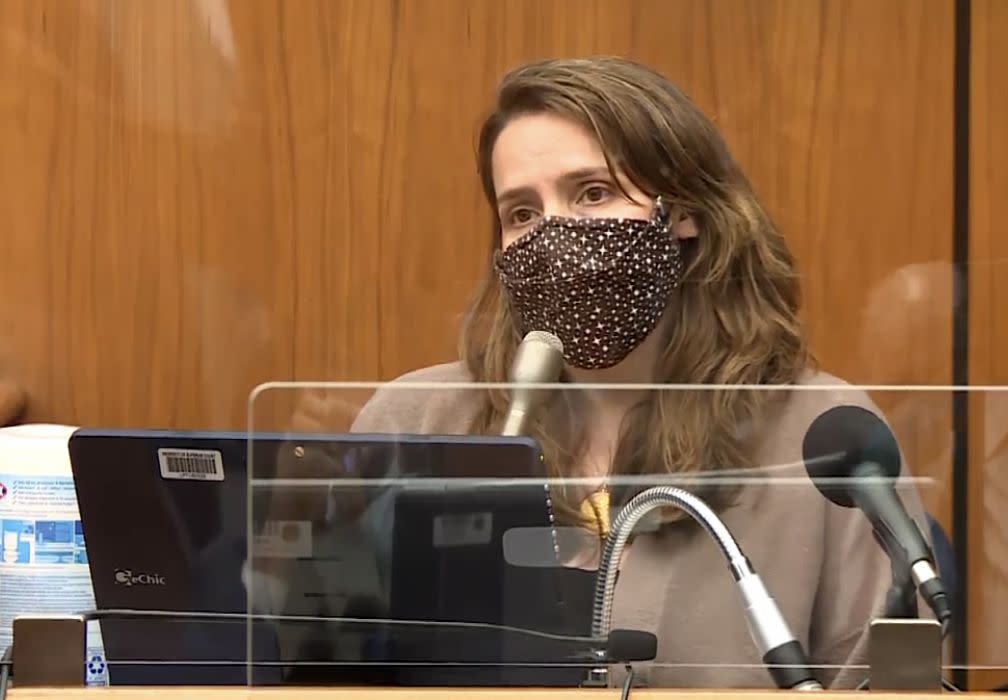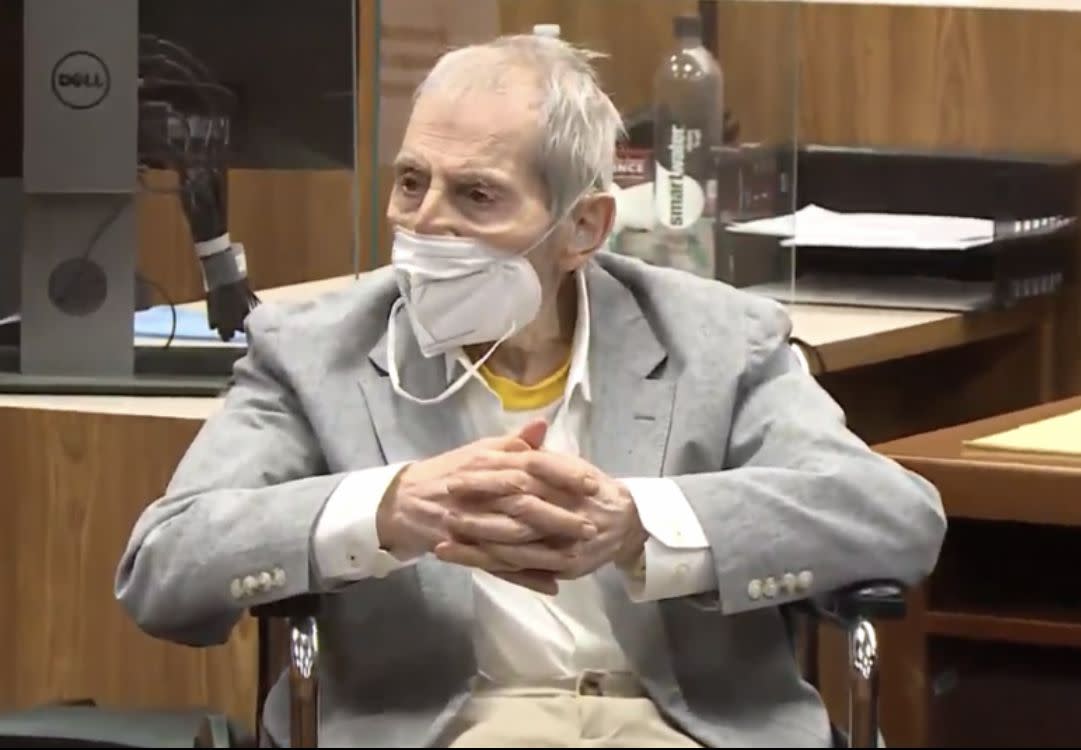At Robert Durst murder trial, witness says Susan Berman confessed she made ‘alibi’ call after Kathie Durst vanished
Jurors at Robert Durst’s murder trial heard blockbuster testimony Wednesday from a woman who said victim Susan Berman once confessed to her she helped Durst with his “alibi” after his first wife went missing in 1982.
Mella Kaufman, Berman’s de facto stepdaughter, told a Los Angeles jury she was a teenager when Berman made the startling admission on Sunset Boulevard.
She said the pair were heading home after visiting a UCLA library for one of her school assignments, and Berman started telling her an “interesting” story.
“She was telling me about her friend (Durst) and how his wife had disappeared and how she had been an alibi, or made a phone call for him, so that it wasn’t suspicious,” Kaufman, 45, testified.

“She left it kind of like a cliffhanger. You know, she left me in suspense, like, ‘Did he do it?’ And she kind of smirked and said, ‘I don’t know, what do you think?’” Kaufman said.
The testimony is a centerpiece of the prosecution’s theory that Durst murdered Berman inside her Los Angeles home in December 2000 to guarantee her silence amid a renewed investigation of Kathie’s unsolved disappearance in New York.
Prosecutors claim Durst killed Kathie in Westchester in 1982 amid a bitter breakup and then drafted Berman to pose as his wife a day later and call in sick to Kathie’s Bronx-based medical school. They claim Durst later murdered Berman when he began to worry she might rat him out.
Durst, 78, has pleaded not guilty to Berman’s murder, claiming he didn’t kill her or Kathie and doesn’t know who did.
Kathie was eventually declared legally dead, but her body was never found.
Los Angeles County Deputy District Attorney John Lewin told jurors during his opening statement that Mella Kaufman would testify that Berman admitted to her she made the alibi call for Durst.
The call was critical because it led New York police back in 1982 to believe Kathie successfully traveled to Manhattan after leaving the South Salem house she shared with Durst the night she was last seen alive by close friends.
“Do you have any doubt in your mind that Susan Berman talked to you about Bobbie (Durst) and his missing wife,” prosecutor Habib Balian asked Kaufman on Wednesday.
“None at all,” she replied.
“How certain are you that Susan Berman told you that she helped her friend Bobby with this situation by providing some sort of an alibi?” Balian asked.

“Completely,” Kaufman said.
Under cross-examination, defense lawyer David Chesnoff suggested Kaufman’s recollection of the conversation was a “false memory.”
Kaufman confirmed she never mentioned the conversation when she spoke to producers of the HBO docuseries “The Jinx,” which chronicled Durst’s life. She said the reason was because she didn’t feel comfortable with the project and wasn’t sure she even wanted to appear on camera.
In the series, her brother Sareb Kaufman discovered correspondence from Durst amid some of Berman’s belongings that matched up with the anonymous “cadaver note” that alerted authorities to Berman’s body inside her Benedict Canyon home.
Both misspelled Beverly as “Beverley” and used the same distinct block lettering.
In a shocking stipulation before Durst’s murder trial began, his lawyers admitted Durst authored both notes. They claimed he arrived at Berman’s home after she was killed, panicked when he saw her body, sent the note to Beverly Hills Police so they could find her and then fled to Texas where he hid out as a mute woman.
Durst’s friend Douglas Oliver took the witness stand after Kaufman Wednesday and was quickly designated a hostile witness due to the way he answered Lewin’s questions with questions of his own and was generally uncooperative.
During a sidebar, Durst, who was seated at the defense table in a wheelchair, raised his right arm and motioned toward Oliver with a supportive first pump.
#RobertDurst - WOW! While judge & attorneys were at a sidebar, Robert Durst gives his buddy, Douglas Oliver, a fist pump of encouragement. @LawCrimeNetwork pic.twitter.com/mjxHFAXPID
— Cathy Russon (@cathyrusson) June 9, 2021
Lewin grilled Oliver over the fact he was at Durst’s Manhattan apartment in 1981 when Durst allegedly kicked a man in the face with a cowboy boot, breaking the man’s orbital bone. Oliver said he didn’t witness the kick and didn’t consider it a big deal.
“The party went on,” he said. “No one talked about it... I don’t recall there being a violent incident.”
He confirmed he spoke to Durst “a few times” during the week after Kathie went missing and said Durst didn’t mention she disappeared.
“I accepted Bobby for what he was, and if he didn’t want to talk to me about something upsetting, I don’t think it’s so wrong that he didn’t talk to me,” Oliver testified.
“Don’t you think he would be trying to figure out where she was rather than wanting privacy?” Lewin asked.
Oliver, the former son-in-law of late New York real estate magnate Abe Hirschfeld, said he didn’t question Durst’s silence.
